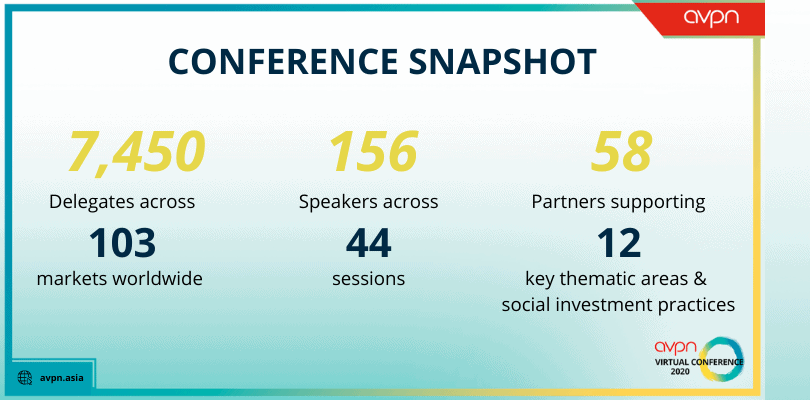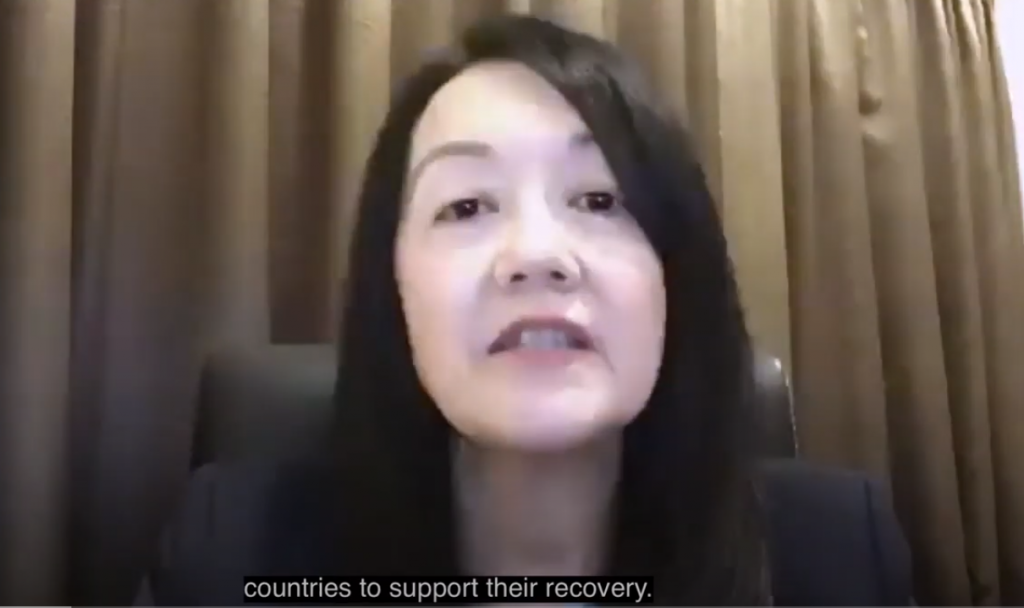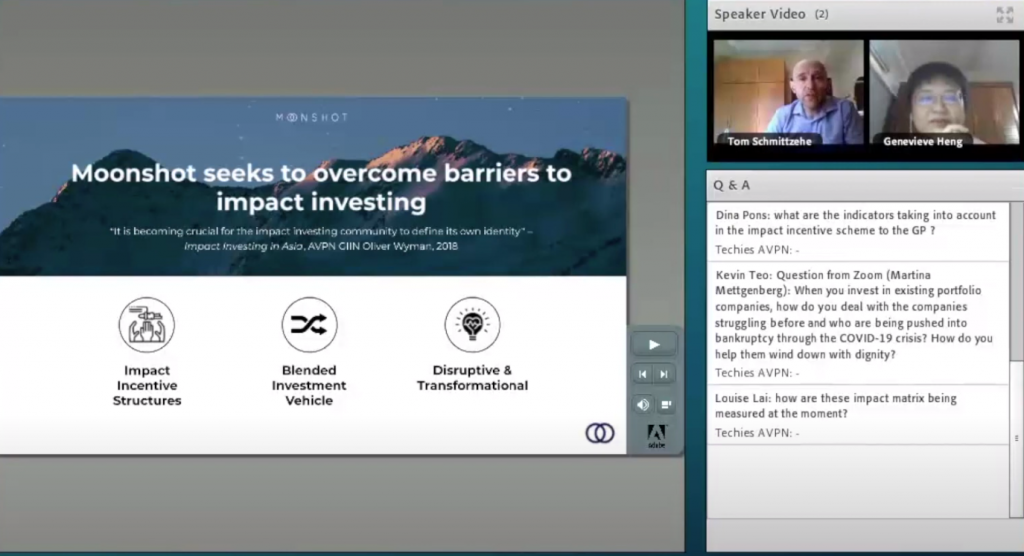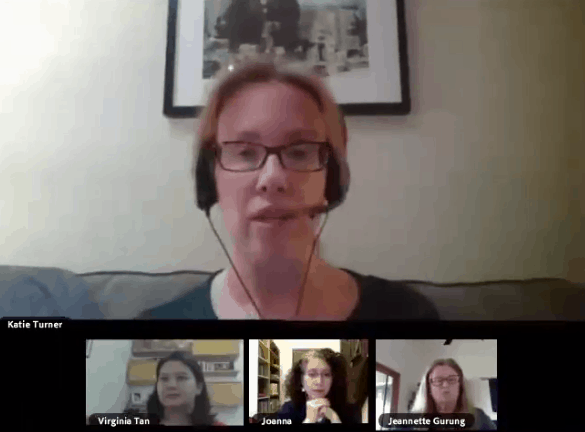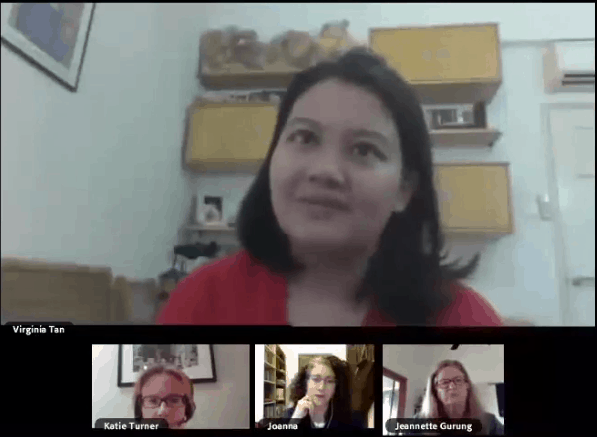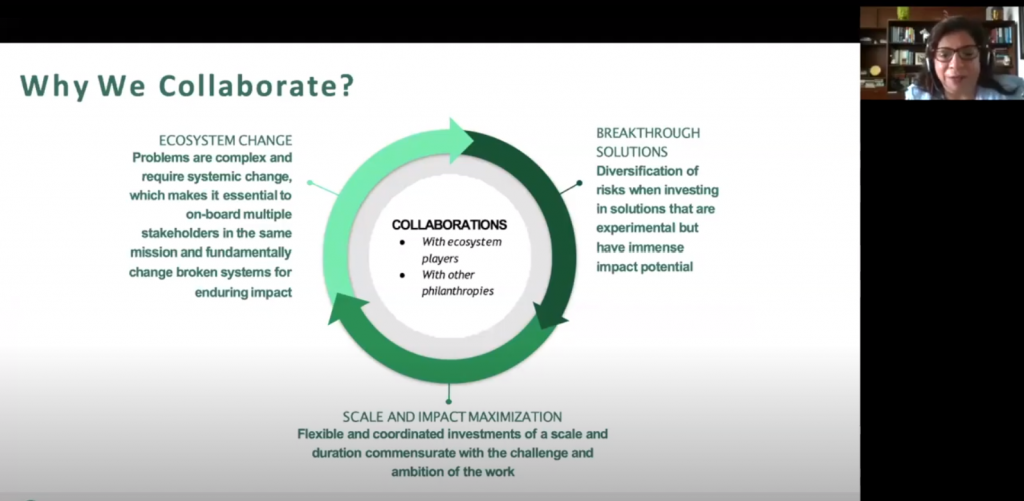5 min read
With the COVID-19 pandemic, AVPN took its Annual Conference fully online for the first time ever. It was the largest showing to date, attracting a record 7,500 participants from 103 markets. The five-day event saw the social investment community in Asia pledge their commitment to advance social impact, reinforce their connections to one another, and share stories of innovation and inspiration. Here we share six memorable takeaways from the Conference.
1. “The pandemic provides a prime opportunity for countries to ‘build back better’. It is important now, more than ever, that we not only focus on rebuilding our economies and preserve jobs, but also in the process, intentionally build a more sustainable new economy.” – Jacqueline Loh, Deputy Managing Director, Monetary Authority of Singapore (MAS)
In her keynote speech, Jacqueline Loh of the MAS emphasised the importance of using COVID-19 to ‘build back better’. This means doing more than getting livelihoods and economies back on their feet. Recovery plans should also facilitate investment and behavioural changes that will reduce the impact and likelihood of future shocks, and strengthen our resilience to them. Central to this approach is a focus on sustainable and resilient development. To this, Jacqueline Loh called upon delegates to launch robust green and sustainability-focused fund strategies, in anticipation of rising demand in a post-COVID-19 world. Focusing on impact investments also allows investors to achieve the twin goals of making a positive impact, while generating market competitive financial returns.
2. “When we talk about hitting impact goals, we are also talking about hitting business goals” – Tom Schmittzehe, Co-Founder, Moonshot Ventures
3. “Demonstrating the business case for gender and climate, or any social impact or investment projects, is essential. When you show people the data and how it can improve their business performance, they start to pay attention.” – Katie Turner, Senior Director, Mennonite Economic Development Associates (MEDA)
The business world is largely driven by financial outcomes. Hence, stakeholders advancing gender and/or climate, or any other social impact issues, will need to secure buy-in by showing a strong business case for incorporating social impact in business decisions. Katie Turner of MEDA and Tom Schmittzehe of Moonshot Ventures emphasised the need to leverage data to show businesses – a key sector for driving socio-economic empowerment – that they should care. Adopting data-driven and quantitative approaches also benefits social impact organisations. It ‘professionalises’ the sector by driving accountability towards measurable outcomes, and brings it closer to the business world.
4. “Digitalisation will no longer be optional; it will be urgent and necessary. We have to be intentional in using technology to include and amplify marginalized voices. We also have to ensure that groups that do not have access to technology are not further disadvantaged.” – Virginia Tan, Founding Partner, Teja Ventures
COVID-19 has accelerated digitalisation and moved many aspects of daily life online. While internet connectivity and digital devices have become necessities for most of us, they are still priced beyond the reach of the disadvantaged. The COVID-19 pandemic has further exacerbated on-the-ground realities, as disadvantaged groups find themselves unable to carry out ‘business-as-usual’ activities. As digitalisation is here to stay, we must ensure that efforts to leverage digital for social impact do not further marginalise the marginalised. Specifically, solutions should not only focus on ‘high-end’ technology, but cater to those who are not online too – and help them to get online.
5. “All of us are only seeing parts of the ‘elephant’. We need to collaborate to see the full ‘elephant’, so that we can move to the important next step of devising solutions to tackle these elephants in the room.” – Deepali Khanna, Managing Director of Asia Region Office, Rockefeller Foundation
Advancing social impact requires us to do so with humility, and acknowledge that we do not hold all the answers. Fortunately, with diverse players in the ecosystem, there will be groups that can complement our strengths and perspectives – if we choose to reach out to them. Deepali Khanna of the Rockefeller Foundation highlights the power of collaborations in allowing us to look at socio-economic issues in entirety, which is crucial in devising solutions to tackle them holistically. She called upon organisations to step out of their comfort zones in fostering collaborations, for working with unlikely partners can propel our work forward in ways that we never thought of. As we can see from AVPN Constellations 2020, collaborations between diverse players to address complex problems can reap stronger outcomes than doing so in silos.
6. “Impact on scale will not happen if it’s not locally relevant.” – Olivia Leland, Founder, Co-Impact and former Founding Director, Giving Pledge
From gender inequality and climate change to food security and educational inequality, the socio-economic issues we face are global in nature. Yet these issues are manifested differently in our communities. Tackling them effectively requires us to recognise local distinctions, and understand that communities have their unique ways of life. As such, Olivia Leland reminds us that efforts to advance social impact must be tailored to on-the-ground realities and market needs. Yet while devising local solutions to global (and regional) issues, it is also important to create topical connections with the wider world – which is needed to tackle complex issues facing our world.
While the Conference might be over, the discussions and partnerships that it has inspired has only just begun. Head over to the AVPN Hub here to explore thematic lounges ranging from climate action to gender, and find out how you can connect, learn and lead on these agendas.


















